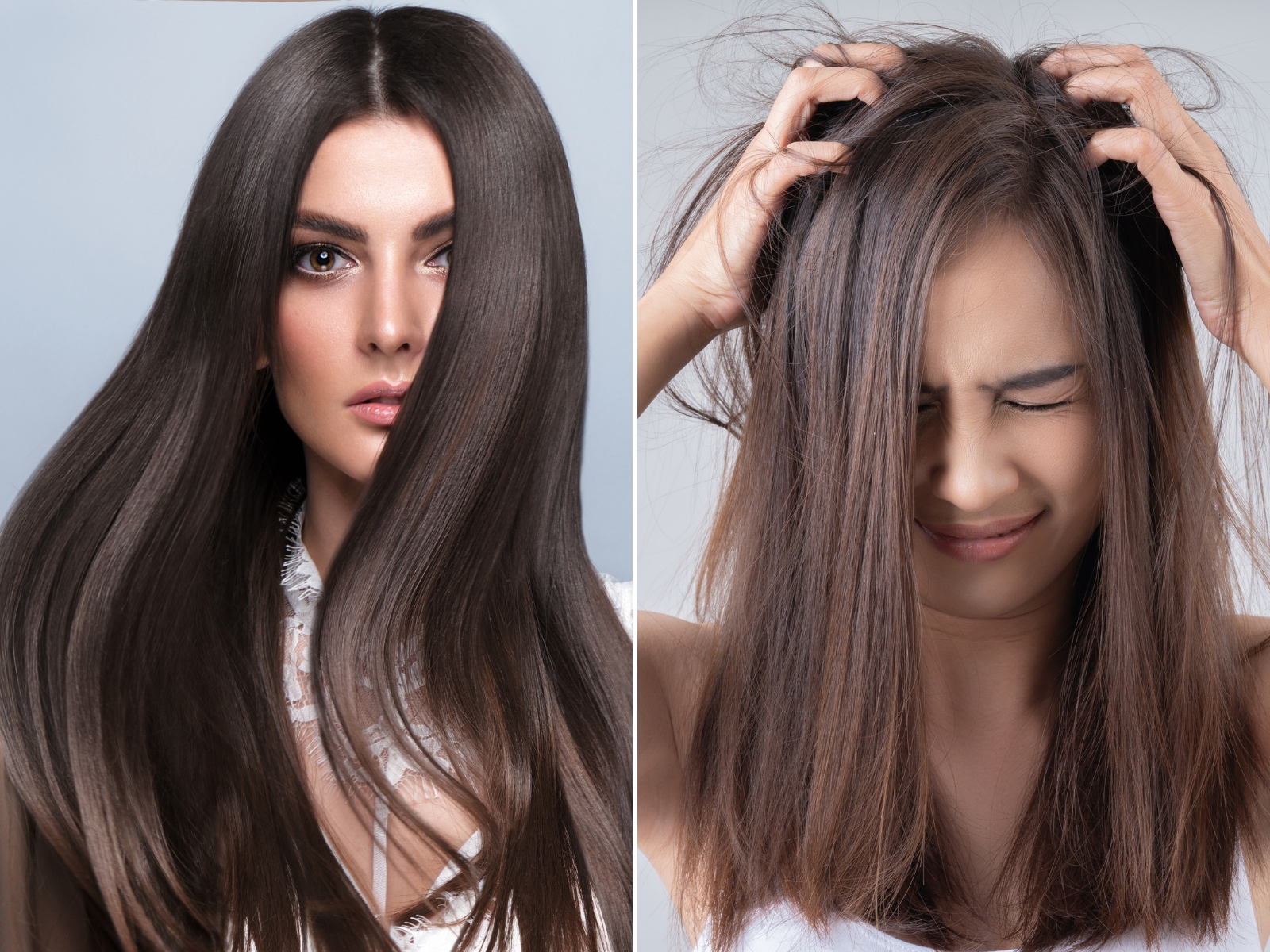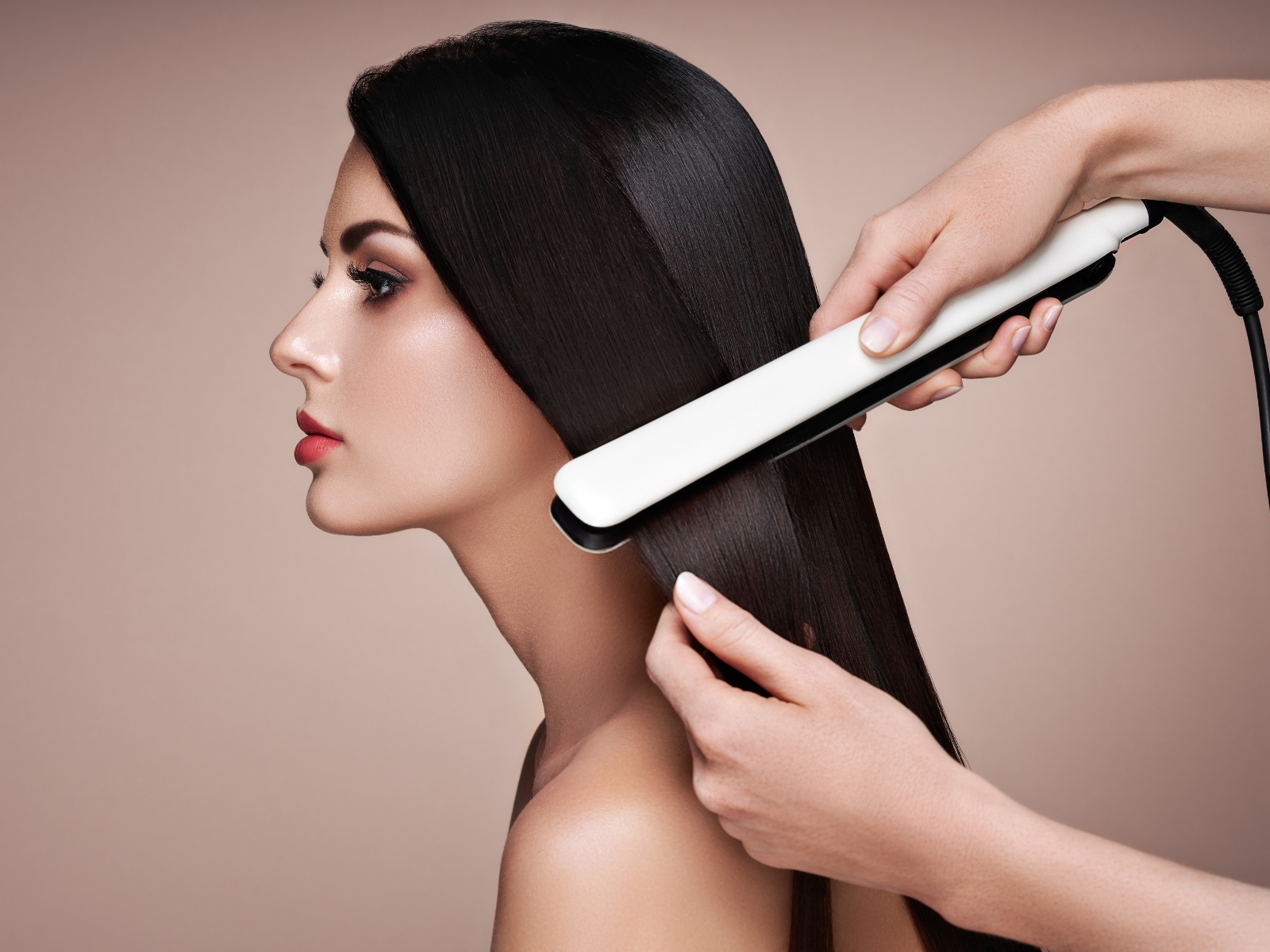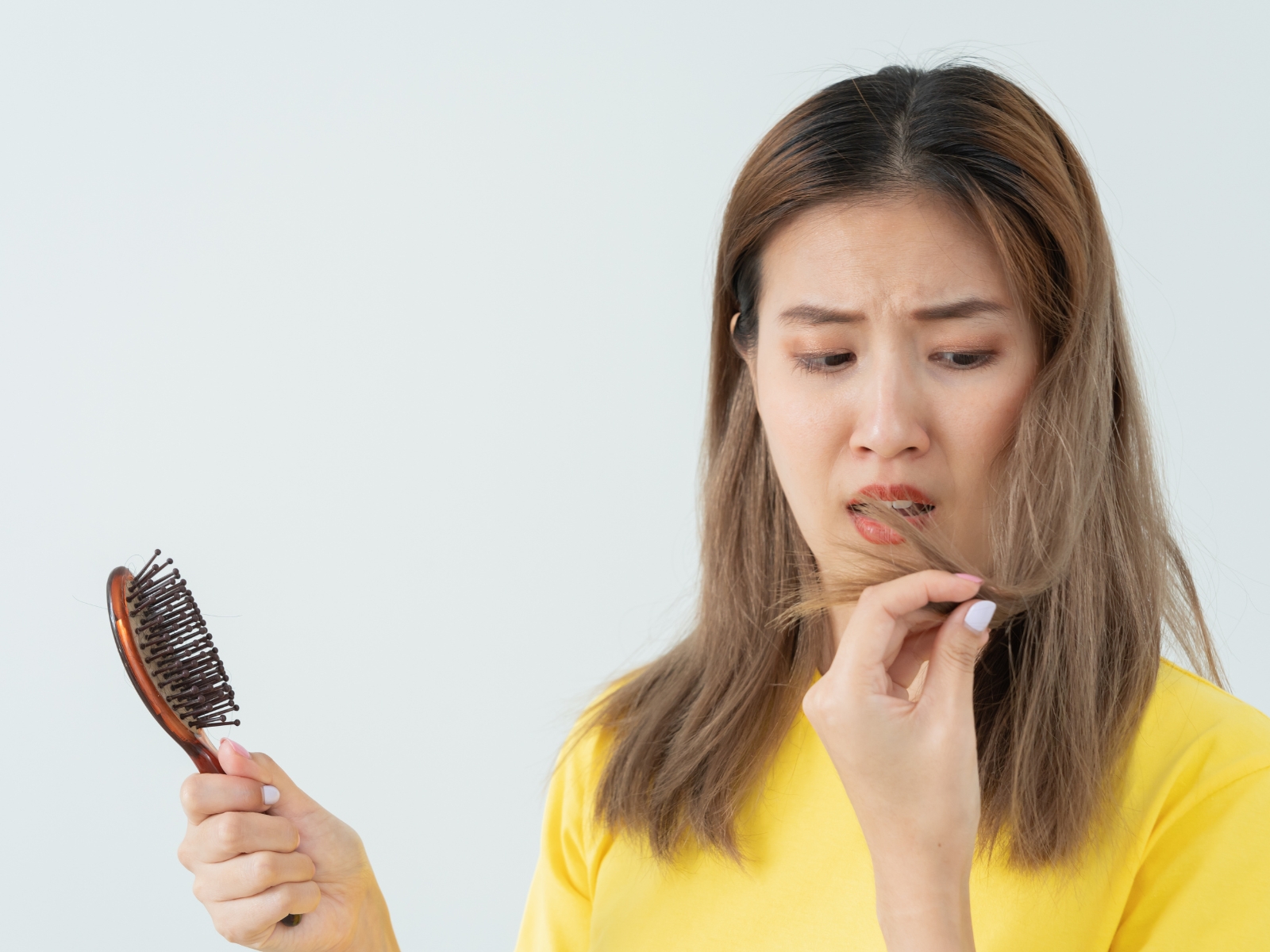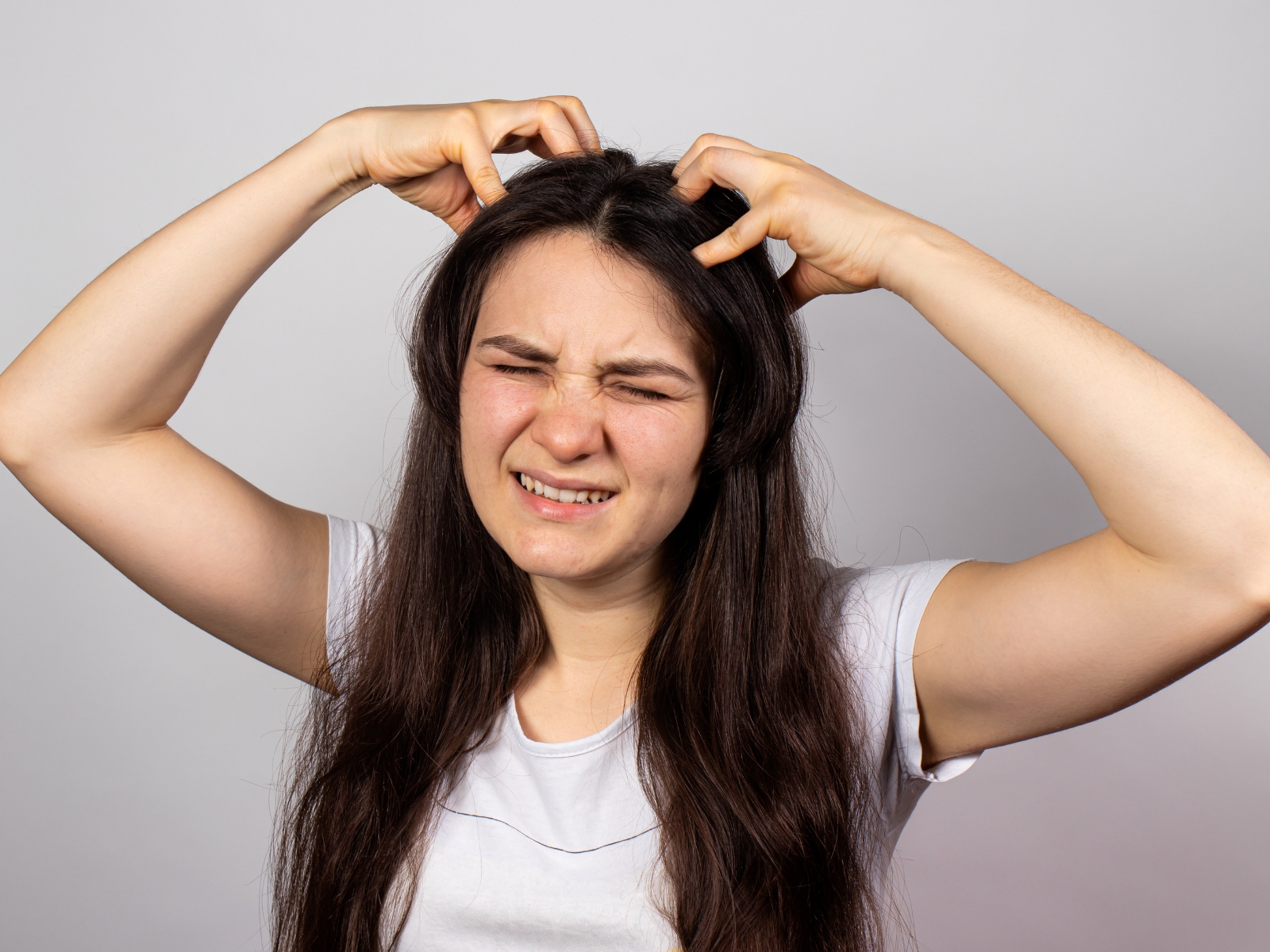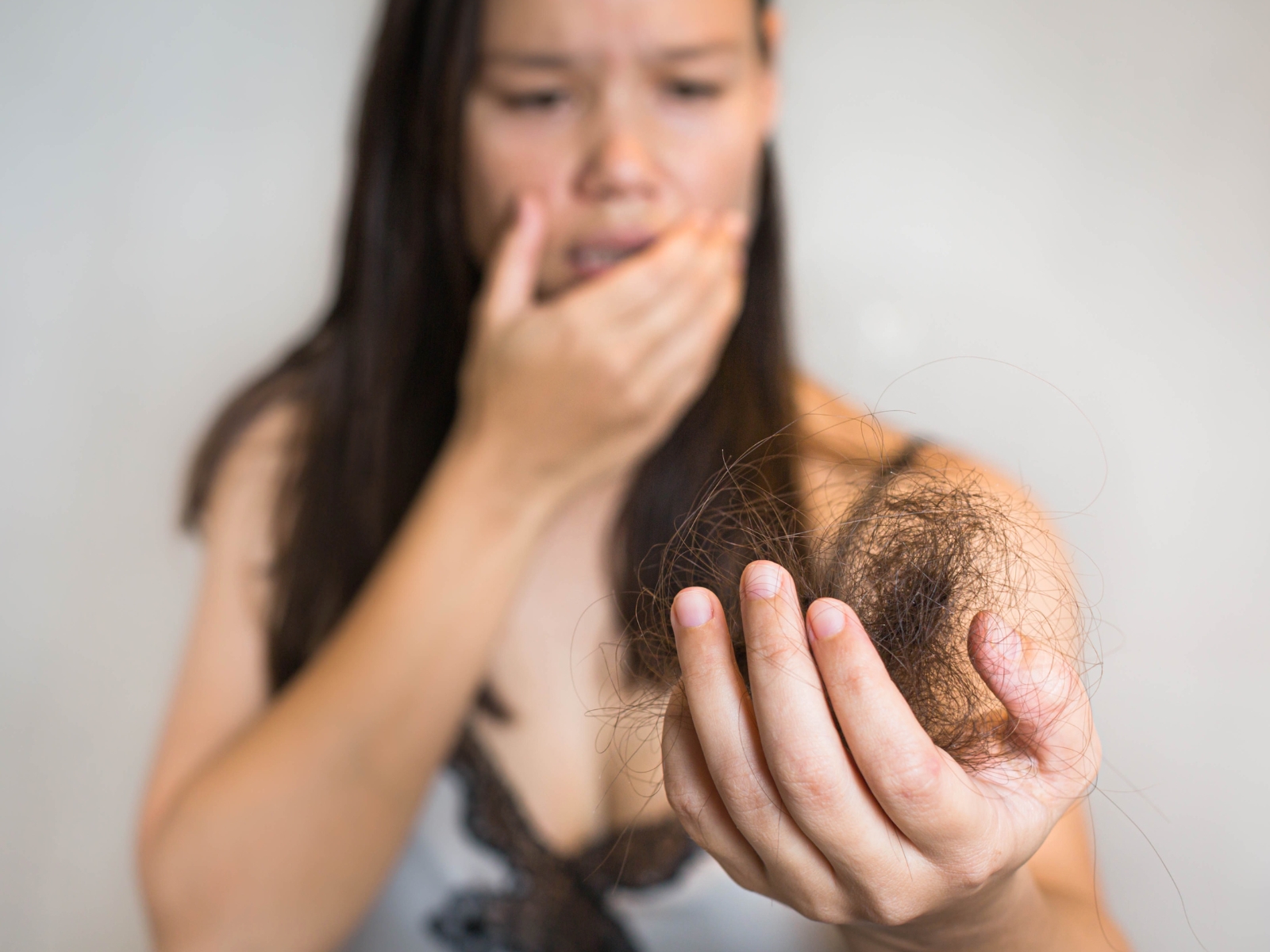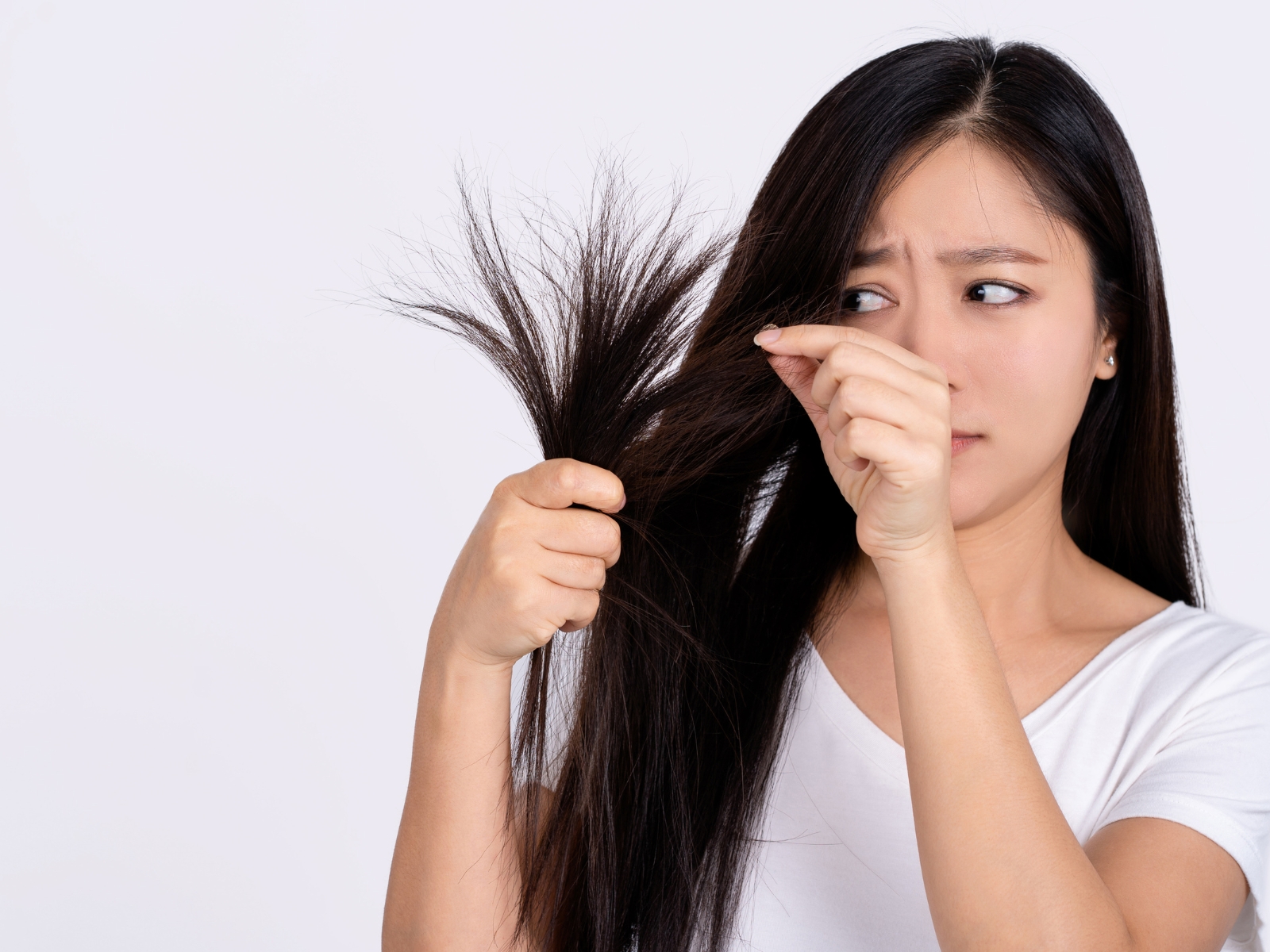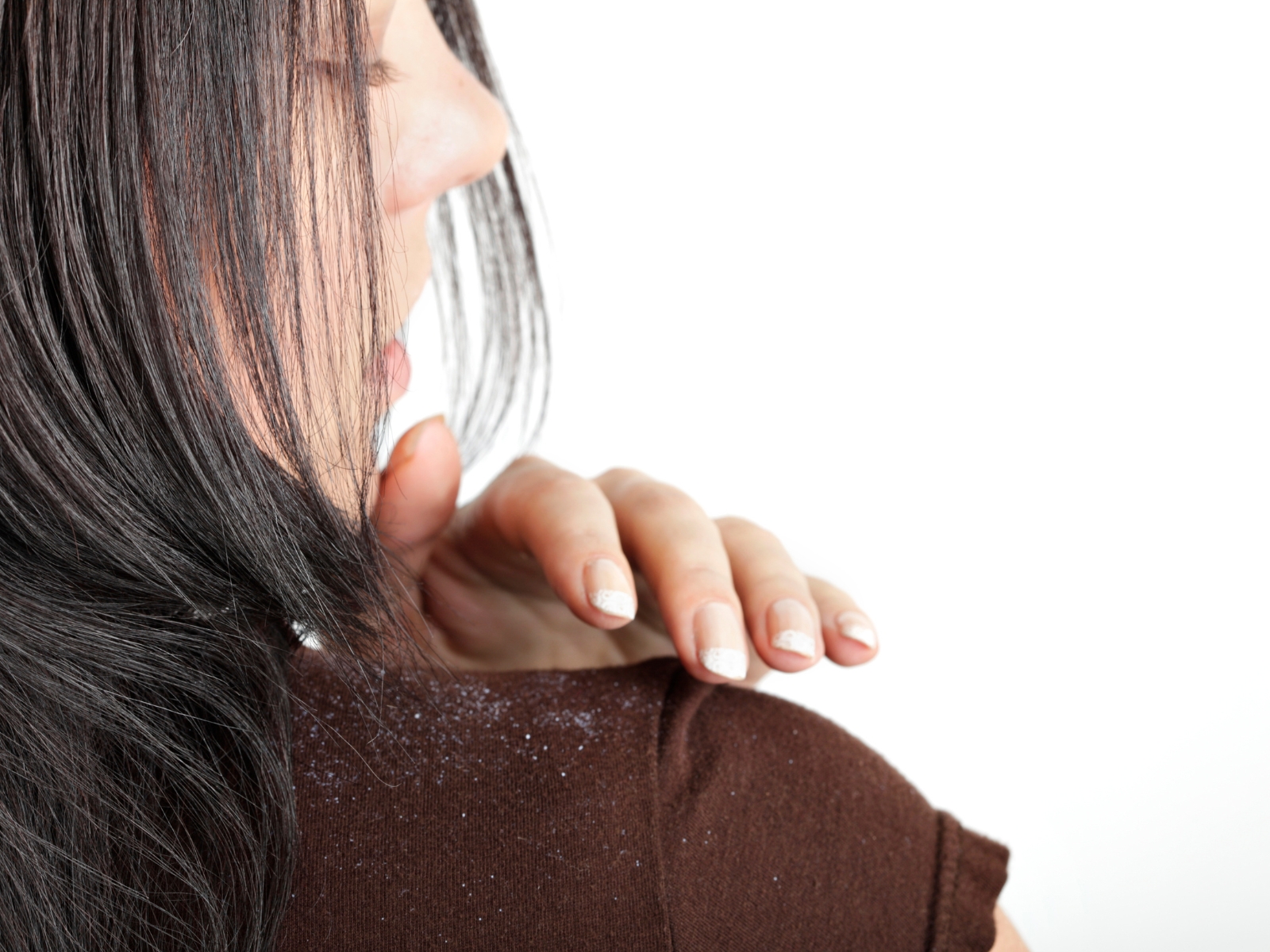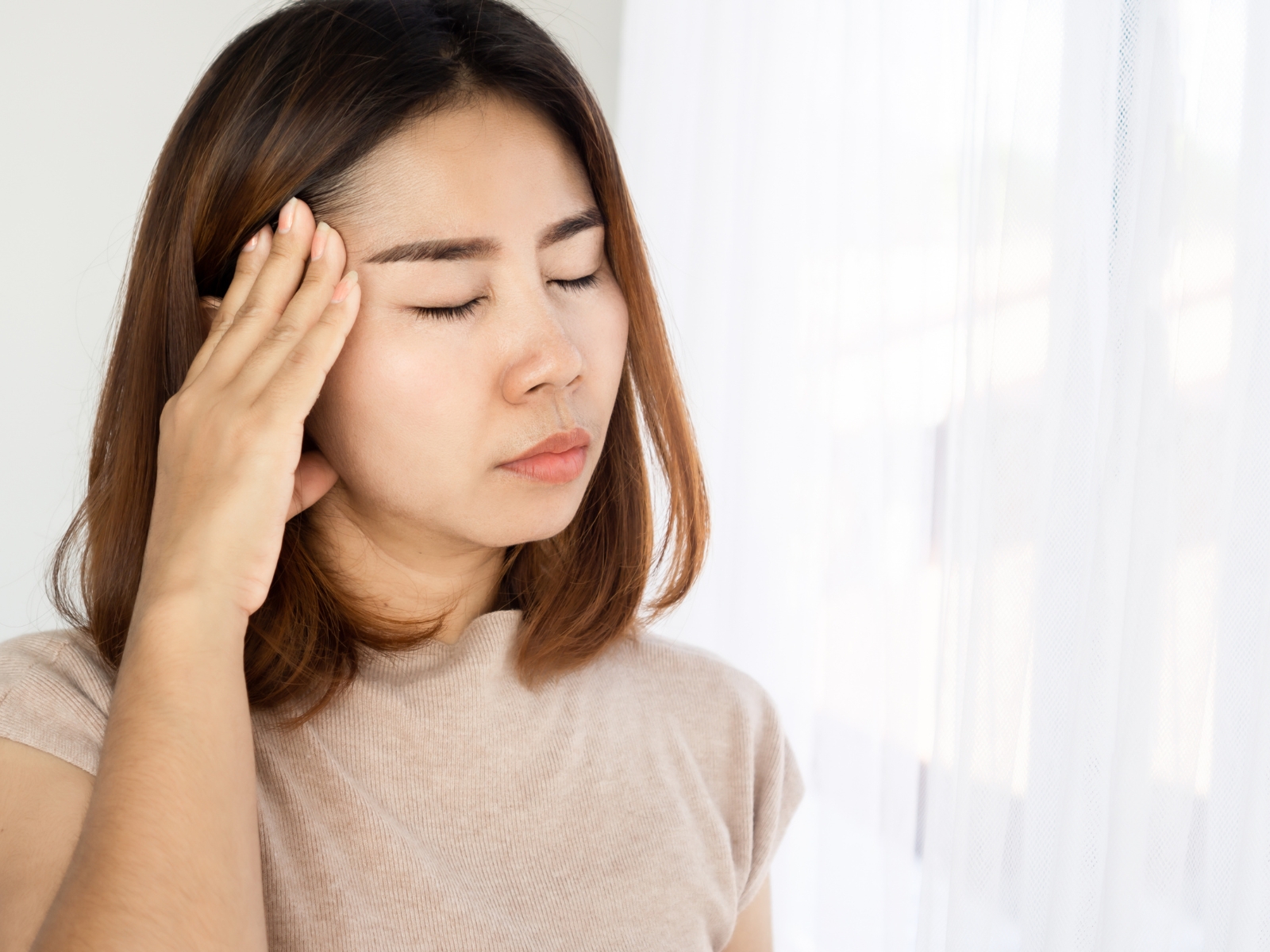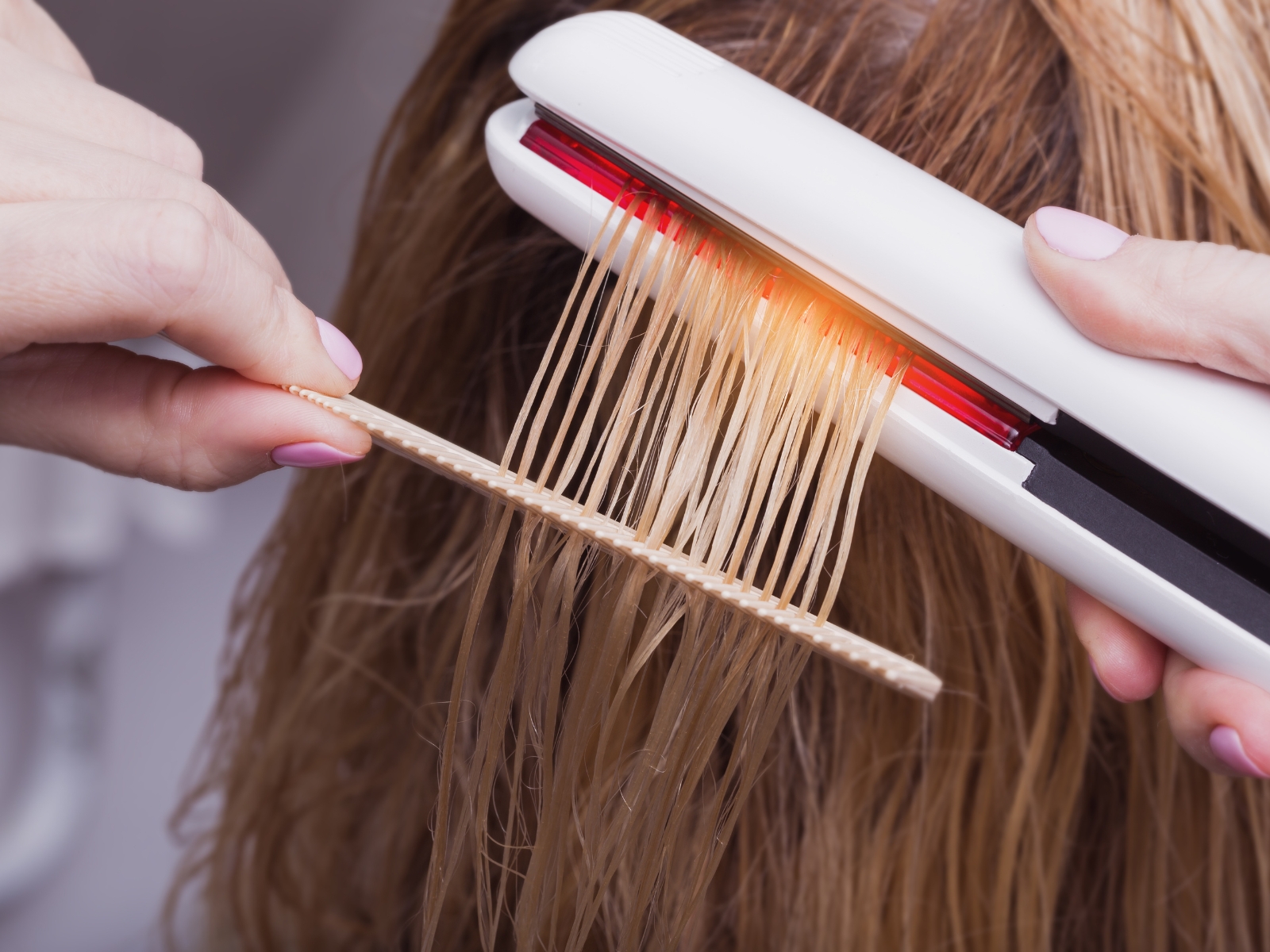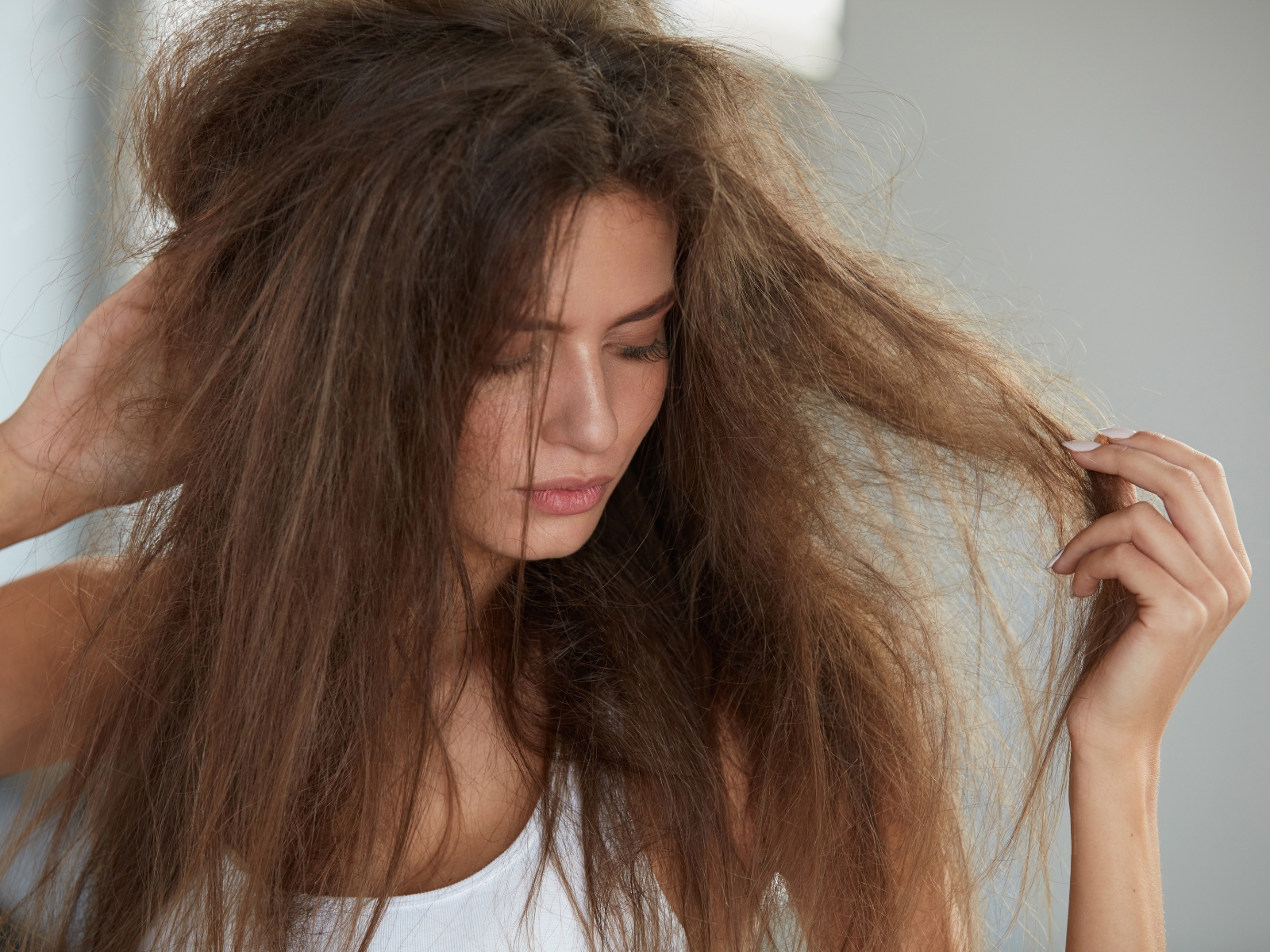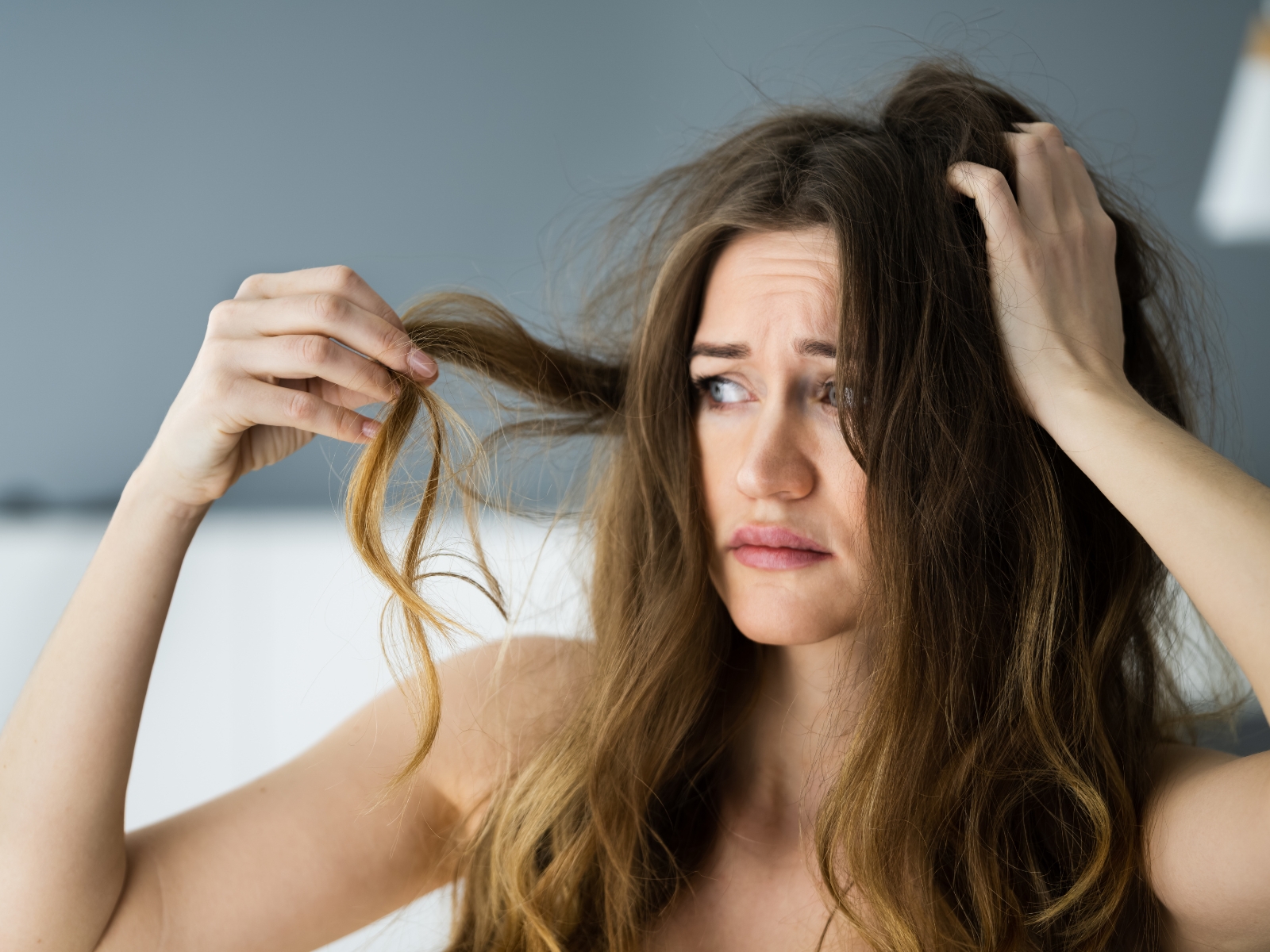Keratin smoothing treatments were on everyone’s to-get list for a while. A single salon appointment followed by months of silky, shiny and frizz-free hair? Sounds too good to be true. So what’s the catch?
All smoothing treatments can damage and weaken your hair, but a keratin treatment also comes with potential health risks caused by harmful chemicals. Read on to see if it’s all worth it.
What Is A Keratin Treatment?
A keratin treatment is done by applying a keratin solution to wet hair, which is then left to penetrate the strands for a few hours. Next, the hair is blow-dried, then the treatment is finally sealed in with a flat iron.
Benefits of the keratin smoothing hair treatment include: shiny, smooth, frizz-free hair, blow-drying time cut in half, and even stronger tresses. If directions for post-treatment haircare are followed, these effects may last for months.
But we must also consider the other side of the coin.
Why Are Keratin Treatments Risky?
Keratin is a natural protein found in our skin, hair and nails. Products used in smoothing treatments usually contain keratin derived from animals, and on its own, keratin is safe and beneficial. The real concern is the ingredient that makes the treatment so effective: formaldehyde, a harmful substance and a known carcinogen.
If you get a warning before the treatment to expect itching, stinging, burning, runny nose, throat irritation—it’s about formaldehyde exposure.
While the products used might not actually contain formaldehyde, they contain other substances that release it into the air when heat is applied, such as formalin and methylene glycol. It’s important to check the product label for these even if it claims to be formaldehyde-free.
Both the client and the stylist are at risk of inhaling this harmful chemical. Stylists have been reporting difficulties caused by this treatment for several years.
According to The Centers for Disease Control and Prevention, in small doses, formaldehyde may immediately cause headache, rhinitis, watery eyes, coughing, nausea. In higher doses it can come to severe mucous membrane irritation, burning sensation of the eyes, nose and throat, bronchitis, or pulmonary edema. In sensitive people pneumonia, asthma and allergic contact dermatitis can happen even at very low doses.
Aside from formaldehyde exposure, a keratin treatment may also have other negative side effects that it shares with other hair smoothing treatments caused by heat, harsh chemicals and over-processing.
Negative Side Effects Of Hair Smoothing
1. Damage to the hair shaft
High heat and chemical processing that are a part of keratin treatments can damage the hair shaft, especially after repeated treatments. Many people continue getting keratin treatments when their hair stops being smooth. Constant chemical treatments can affect every aspect of the hair structure and the hair never gets a chance to restore to its natural state.
2. Changes in texture
Hair smoothing changes the structure of the hair, which can affect your natural hair texture. Most keratin treatments wash out, so your original texture will regenerate, but those treatments that also straighten your hair are more permanent and can result in an irreversible change.
3. Hair loss
Hair is placed under stress when going through the treatment process, which may cause temporary hair loss. Keratin treatments involve high heat and chemicals, and this also contributes to weakening of the hair follicles and hair thinning, especially if done repeatedly.
4. Breakage
Heat and the use of formaldehyde and other chemicals can weaken the hair and cause damage that might be difficult to repair. After you get a smoothing treatment, your hair may seem healthier and stronger, but as the keratin washes off, you may discover that your hair is much more fragile and prone to breakage.
5. Dryness
You may notice that your hair has become dry as the treatment starts to wear off. Dehydrated hair is weaker and more brittle, so you may also experience damage. In addition to your strands, the chemicals can also make your scalp too dry, which can lead to other issues, like greasy hair and dandruff.
6. Split ends
Excessive heat, chemicals and lack of moisture are a recipe for split ends. Keratin is sealed into the hair with a flat iron, having been previously treated with harsh chemicals. This leaves the hair brittle and sensitive, which can stay hidden until the keratin doesn’t wear off and you finally notice.
7. Scalp irritation
Scalp irritation caused by the chemicals used in keratin treatments can include itching, redness or a burning sensation. If you have a sensitive scalp, the reaction may be more severe, and if you have scalp conditions, the procedure can also make them worse.
8. Greasy hair
If your scalp becomes dry, your skin may start to produce more sebum and make the scalp greasy to compensate, making your hair greasy at the same time. Excessive greasiness can also happen if using too many products for hair maintenance.
9. Dandruff
Irritated, dry or greasy scalp, chemical residue, stress on the hair caused by the treatment—all of this can lead to dandruff, which can be notoriously difficult to get rid off permanently until your scalp has completely healed.
10. Hair color fading
Hair coloring process and keratin treatments affect each other, so it’s recommended that you take some time between the two, especially if you’re covering gray hairs. A keratin hair treatment may lift hair color and make it fade, so it’s best to color your hair some time after the treatment.
11. Difficult maintenance
Maintaining the results of hair smoothing takes special aftercare which may prove difficult. After doing a keratin treatment, you shouldn’t wash hair and use any products for several days, and you must avoid touching your hair or wearing it up so as not to cause crimping and denting. To preserve the results longer, you should avoid using heating tools or swimming in chlorinated water or salt water long-term.
12. Allergic reactions
If you are allergic or sensitive to any of the ingredients in smoothing treatments, you may experience a reaction, such as skin irritation, rash, itching, etc. If you have a formaldehyde sensitivity, you may also have a more severe reaction than expected.
Alternatives To Keratin Hair Smoothing
Because formaldehyde is the substance that makes keratin smoothing effective, finding a product that doesn’t contain it and still works is difficult. Even at-home keratin treatments that last for a shorter period of time have to contain formaldehyde to be effective.
If you’re looking for alternatives, consider the pros and cons of the following treatments.
• Kerasilk is a keratin treatment without formaldehyde that reduces frizz and conditions the hair—but stronger solutions also permanently straighten the hair so as it grows out, it has two different textures.
• Japanese hair straightening, a treatment similar to a flat perm, is a lasting solution, but it’s not without risks of its own. Because the chemicals it uses are still harsh, it can cause damaged hair, especially if your hair has been colored.
• Hot oil treatments revive damaged hair, reduce frizz, protect and nourish the hair. You can apply heated oil of choice at home regularly to condition your hair and stimulate hair growth. The downside of a hot oil treatment is that its smoothing effects are temporary.
Frequently Asked Questions
Who should not do hair smoothing?
You shouldn’t do hair smoothing treatments:
- If you’re sensitive to formaldehyde, you’re at risk of more severe reactions.
- If you’ve recently dyed your hair, the color can be stripped down.
- If your hair is dry and damaged, the treatment might make the condition of your hair worse.
- If you’re pregnant or breastfeeding, it’s recommended to avoid formaldehyde exposure.
Does your hair go back to normal after smoothing?
This depends on the treatment—some protect the integrity of the original texture, while others are permanent. Consult your hairdresser on the procedure and products used before you decide on having a treatment.
Is smoothing hair better than straightening?
The answer to this question depends on your hair texture and what you want to achieve. Hair straightening is permanent and it alters the structure of the hair. Hair smoothing lasts for two to five months and reduces frizz. Consider the associated risk with each type of treatment before you make a decision.
Does smoothing make hair thin?
Hair smoothing treatments can cause hair loss which results in thinner hair.
Key Takeaways
- Keratin treatments can have lots of benefits for the hair, but they also have downsides, especially when done often.
- Keratin hair smoothing treatments carry a risk of formaldehyde exposure.
- High heat and the use of chemicals can lead to damage that includes hair loss, breakage and scalp irritation.

